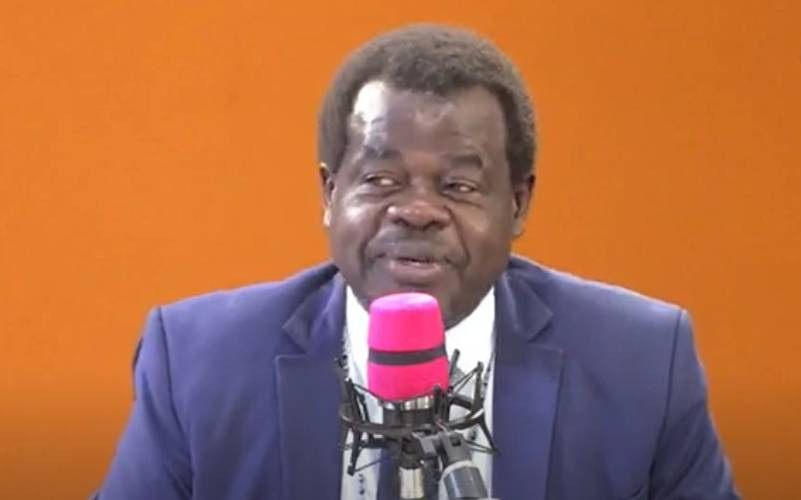- Police in Israel stormed the sensitive Al-Aqsa mosque before dawn, on the eve of Jewish Passover.
- Two years ago, clashes at the mosque set off a short war in Gaza.
- Rockets were fired from Gaza overnight, with Israeli air strikes targeting what it said were Hamas weapons sites.
Israeli police entered Jerusalem’s Al-Aqsa mosque before dawn on Wednesday and clashed with worshippers, setting off a furious reaction from Palestinians across the occupied West Bank and cross-border strikes in Gaza.
The incident, during the Muslim holy month of Ramadan and on the eve of the Jewish Passover, came amid fears that tensions built up during a year of escalating violence could be unleashed at the Al-Aqsa mosque, where clashes in 2021 set off a 10-day war with Gaza.
At least nine rockets were fired from Gaza overnight, prompting air strikes from Israel which struck what it said were Hamas weapon production sites, setting off ground-shaking explosions heard across the blockaded coastal strip.
Witnesses said Israeli tanks also shelled Hamas positions along the border fence in the southern part of the Gaza strip.
As day broke, the situation appeared to have calmed but the Palestinian Red Crescent said 12 Palestinians had sustained wounds, including from rubber-tipped bullets and beatings, in clashes with Israeli police. It added that Israeli forces were preventing its medics from reaching the area.
“In the yard to the eastern part of the compound, the police fired tear gas and stun grenades, it was a scene that I can’t describe,” said Fahmi Abbas, a worshipper at the mosque. “Then they stormed in and started beating everyone. They detained people and put the young men face down on the ground while they continued beating them.”
Videos circulating on social media, which Reuters could not independently verify, showed fireworks going off and police beating people inside one of the mosque buildings. Police video showed police entering the building while fire crackers exploded in the darkness.
Israeli police said in a statement that security units were forced to enter the compound after what it called masked agitators locked themselves inside the mosque with fireworks, sticks and stones.
“Following many continuous attempts to remove the individuals from the mosque using dialogue failed, police were forced to enter the compound in order to remove the individuals,” the police said.
“Throughout the presence of police forces in the compound, stones were thrown and multiple firecrackers were set off inside the mosque by many law-breaking individuals and rioters,” the police statement said, adding that two police officers were wounded.
It said police arrested and removed more than 350 people who had barricaded themselves inside. “The police did a good job,” the hardline National Security Minister Itamar Ben-Gvir said in a statement.
Thousands of worshippers spent the night in the mosque compound, amid fears of possible clashes with Jewish visitors to the site, which they revere as the Temple Mount, the site of Judaism’s two ancient Temples.
Under the longstanding “status quo” arrangement governing the area, which Israel says it maintains, non-Muslims can visit but only Muslims are allowed to worship in the mosque compound. Jewish visitors have increasingly prayed more or less openly at the site in defiance of the rules.
The Waqf, the Jordanian-appointed organisation that manages the complex, considered the third holiest site in the Muslim world, described the police actions as a “flagrant assault on the identity and the function of the mosque as a place of worship for Muslims alone”.
Condemnation
The incident drew a sharp reaction from Arab countries. Jordan and Egypt, both involved in recent U.S.-backed efforts to de-escalate tensions between Israel and the Palestinians, issued separate statements strongly condemning the incident, while Saudi Arabia, with whom Israel hopes to normalise ties, said Israel’s “storming” of Al-Aqsa undermined peace efforts.
Hazem Qassem, a spokesperson for Hamas, the Islamist group that controls Gaza, said the overnight rocket fire was a response to the police raid in the Al-Aqsa mosque and showed Israel would not be able to separate Gaza from the West Bank.
“The Zionist bombardment on Gaza was a failed attempt to prevent Gaza from continuing its support to our people in Jerusalem and the West Bank by all means,” Qassem said.
However neither Hamas, nor the Iranian-backed Islamic Jihad movement, claimed responsibility for the attacks, which were instead claimed by the smaller Democratic Front for the Liberation of Palestine and the Popular Resistance Committee. The Israeli military says it holds Hamas responsible for all attacks from Gaza.
The Palestinian Authority leadership condemned what it called Israel’s attacks on worshippers, which it described as a crime.
“We warn the occupation against crossing red lines at holy sites, which will lead to a big explosion,” said Nabil Abu Rudeineh, spokesperson for Palestinian President Mahmoud Abbas.
In the West Bank town of Beit Ummar, protestors burned tyres and threw rocks and explosive devices at Israeli soldiers, one of whom was shot and wounded.
With Israel still reeling from weeks of domestic tension over Prime Minister Benjamin Netanyahu’s bitterly contested plans to rein in the powers of the Supreme Court, the incident added to an already fevered political atmosphere.
Over the past year, Israeli forces have made thousands of arrests in the West Bank and killed more than 250 Palestinians, while more than 40 Israelis and three Ukrainians have died in Palestinian attacks.
Israel captured East Jerusalem, including the Old City where the Al-Aqsa Mosque compound is located, in a 1967 war and later annexed it in a move not recognised internationally. It regards Jerusalem as its eternal and indivisible capital.
Palestinians want East Jerusalem for the capital of an independent state they seek in the West Bank and Gaza.





















Discussion about this post